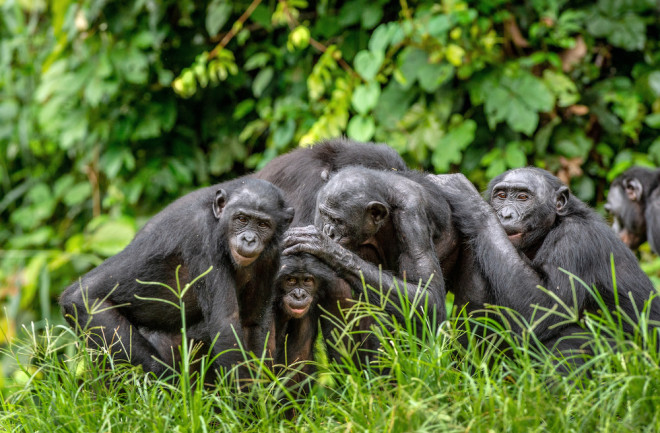There’s a viral TikTok video with over 300 million views showing a distressed toddler crying to her mom, “I’m just a baby!” Acting childish might not get the toddler what they want, but according to new research, it might help a beleaguered bonobo.
Bonobos Act Like Babies After Fights
The adult apes use juvenile behaviors to seek comfort from groupmates, telling researchers human emotions may have ancient origin roots.
Aug 4, 2022 11:01 PMAug 4, 2022 11:02 PM

(Credit: Sergey Uryadnikov/Shutterstock)
Newsletter
Sign up for our email newsletter for the latest science news
0 free articles left
Want More? Get unlimited access for as low as $1.99/month
Stay Curious
Sign up for our weekly newsletter and unlock one more article for free.
View our Privacy Policy
Want more?
Keep reading for as low as $1.99!
Already a subscriber?
Find my Subscription
More From Discover
Stay Curious
Subscribe
To The Magazine
Save up to 40% off the cover price when you subscribe to Discover magazine.
Copyright © 2025 LabX Media Group
